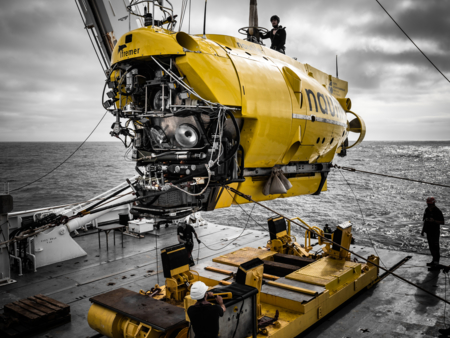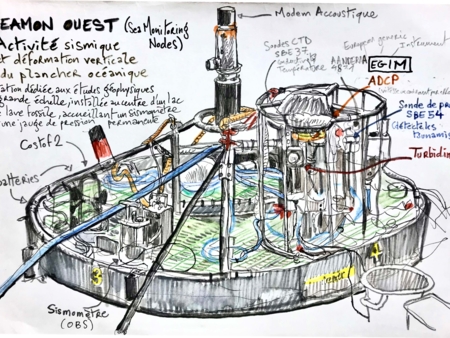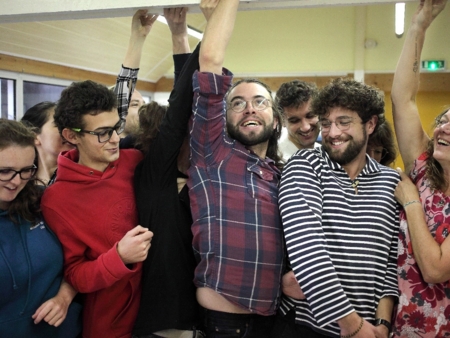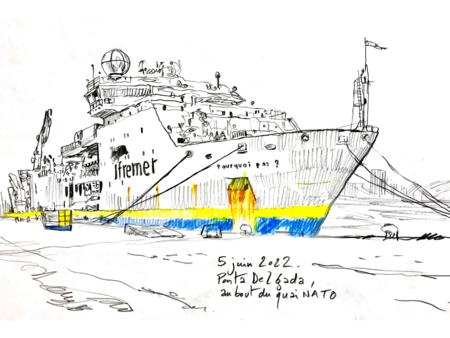Exploring the Depths: A unique participatory conference on biodiversity protection in the deep sea
Charline Guillou - Joëlle Richard, University of Western Britany, AMURE
On February 13th 2024, in the auditorium of Océanopolis (Brest, France), an extraordinary participatory conference took place, captivating the audience with its innovative approach to addressing the challenges of protecting biodiversity in the deep sea.
Six researchers engaged in a captivating theatrical conference to kick off the new season of scientific conferences at Océanopolis, a scientific cultural centre dedicated to the ocean. Members of the DEEP REST and LIFEDEEPER research projects embraced this unconventional format to delve into the potential implications of deep-sea mining on marine ecosystems.
A dive into international negotiations
Attendees were immersed in international negotiations and prompted to ponder critical questions surrounding energy transition, marine mineral exploitation, and conservation efforts. The interactive nature of the conference allowed the audience to engage in real-time voting via smartphone devices, enhancing their involvement in the discussions. Structured as a three-act play, the participative conference featured three themed debates, each scripted and performed by pairs of experts. From an uncertain state president to a CEO advocating for deep-sea mining, and an NGO representative condemning all human activities in these fragile areas, the experts portrayed various roles to explore diverse positions. Following the three debates, attendees were invited to engage in open discussions with the experts, who then shared their own opinions and positions.
A packed house
At 8:30 p.m., 215 individuals, including numerous students, filled the auditorium seats at Océanopolis. Each attendee received a card containing a QR code, enabling them to participate in the interactive voting process. The conference started with Thomas Leclerc shedding light on the environments of the deep sea and its regulation. The first act featured a discussion between a researcher and a hesitant state president, ultimately leading to a call for a moratorium on deep-sea mining. In the second act, amidst arguments from a CEO advocating for mining, the audience favoured the stance of an NGO representative calling for a halt to all activities in the deep sea. In the third act, the researchers embodied concerned citizens; the audience, too, expressed itself in key words at the end of their exchange, with a dominant concern for environmental destruction.
The audience's evident concern over deep-sea mineral exploitation reflects the ongoing drafting of the mining code by the ISA, which has been in progress for over 12 years. As negotiations resume in July at the ISA headquarters in Kingston, the extent to which civil society concerns will be addressed remains to be seen. In conclusion, the participatory conference succeeded in stimulating meaningful dialogue and raising awareness about the complex challenges surrounding biodiversity protection in the deep sea, emphasizing the importance of informed public engagement in shaping future policies and decisions.
At the end, the audience was encouraged to stay informed about the DEEP REST and LIFEDEEPER projects, participate in the citizen science project Deep Sea Spy, and pay close attention to the upcoming media coverage of the next General Assembly of the International Seabed Authority (ISA) meeting in July-August.





